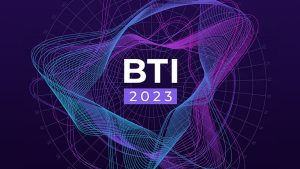Bharathkumar Mani, Account Manager for Financial Services at Expleo, explores how banks can reap the rewards of timely compliance with the new ISO 20022 standard.

For what was once considered a static and predictable sector, the rate of change within the global banking sector in recent times has been breathtaking, ushering in an undisputed era of innovation that is showing no signs of slowing down. The tectonic shifts in the banking landscape have seen a proliferation of neobanks emerge, the unveiling of open banking reforms, and unique deployments of embedded fintech solutions tailored to digital-native customers.
In addition, banks now have to contend with the ISO 20022 mandate, which, at macro level, is geared towards making the global payment infrastructure more robust and data-rich. This represents a digital rewiring of the industry’s data architecture, and achieving ISO 20022 migration in a timely fashion presents a number of far-reaching opportunities for banks operating in today’s highly competitive financial services sphere. Let’s explore some of those opportunities in greater detail:
1. Data-enabled growth
One of the inherent benefits associated with ISO 20022 migration would see a richer tapestry of actionable customer data being accessible to banks. For example, when an individual sets up a bank account or makes a payment, unique data strands that contribute to the overall customer profile can be aggregated and used to drive business growth. More data means more opportunities for cross-selling and up-selling due to the fact that banks will know the customer more intimately, and be able to service them with more nuance. With better data insights, banks will be able to upsell active customers, mobilize lapsed accounts, and crucially, ensure service delivery is more streamlined and cost-efficient.

2. Regulatory compliance
A deeper and more detailed pool of payment data can enable banks to uphold full compliance with regulatory frameworks and anti-money laundering requirements. With banks confronting more detailed reporting stipulations, a standalone library of financial data definitions is a major plus. Richer data sets also provide a catalogue of information for regulators to scrutinize, easing the regulatory administrative burden, and making regulatory compliance a less onerous effort.
3. Digital resilience
While banks will note the scale of work required to achieve ISO 20022 compliance ahead of deadline, reaching that milestone can power an internal groundswell of momentum from a digital resilience perspective. Very often, a forced change of tact presents unique opportunities for growth, and the ISO 20022 sea-change can pave the way for further innovations that were previously cordoned off or deemed out of reach. Viewing ISO 20022 through the prism of opportunity, banks should feel empowered to adopt a proactive approach to migration.

4. Reduce operational costs
The operational overheads inherent to manual processes can be circumvented through automation. One of the objectives of ISO 20022 is to encompass end-to-end business processes and increase straight-through payment processing. The tangible outcome would see more automated processes, allowing payments to be completed without human interaction. By undercutting the amount of manual intervention and the time needed to process payments, operational costs will be reduced, and the reconciliation of transactions and accounts will be more streamlined. A net positive for banks.
5. Fraud mitigation
Limitations in current data collection mechanisms incur a high level of false negatives – instances in which there may be a genuine customer payment being disrupted or declined due to the fact that insufficient data is being collected. Very often the bank might decline the payment, characterising it as ‘suspicious’, and this is a loss to the bank. Conversely, there could also be instances in which there’s an actual fraudulent transaction being carried out, but if most of the boxes are ticked from a data point of view, the ability of the bank to detect the fraud is impaired, allowing the transaction to slip through the cracks. With a richer data set of customer data – spurred on by ISO 20022 – the level of payment failures linked to the incomplete or incorrect entering of information will be greatly reduced.
The shift to ISO 20022, while perhaps a daunting proposition, will, in the long run, yield major efficiency gains for banks, both in terms of domestic and cross-border payments, but also regarding regulatory compliance, fraud mitigation and delivering hyper-personalised services to customers. Bottom line: businesses that adopt a proactive approach to ISO 20022 migration will hold a competitive edge, be in a stronger position to better execute a rigorous regulatory compliance strategy, and mitigate the risk of damaging payment disruptions – bolstering their digital resilience profile in the process.
ISO 20022 Migration Simplified
Access the ISO 20022 Migration Simplified brochure to find out how Expleo can be your end-to-end flexible migration partner – getting you there on time, with our full support.





